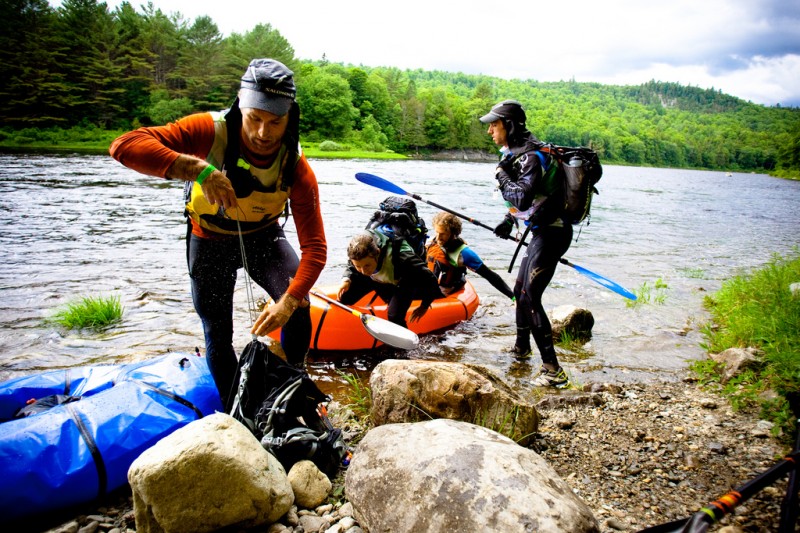
The Untamed New England Adventure Race features a variety of disciplines.
The Untamed New England Adventure Race is back with some badass paddling, mountain biking, rope challenges, orienteering, and trekking.
More than 100 competitors on 40 teams of two, three or four will take to a remote region of Maine known more for moose than man to compete for $10,000 in prize money.
A qualifier for November’s Adventure Racing World Championship in Ecuador, the four-day expedition competition takes place in the backwoods 100-Mile Wilderness region, an area containing the northernmost stretch of the Appalachian Trail.
Portions of the 200-mile course travel over 100 square miles of conservation and recreation land under the auspices of the venerable Appalachian Mountain Club.
“We have some of the premiere teams in the world traveling to the region hoping to secure one of those coveted spots for this fall’s AR World Championship event in Ecuador,” said Race Director Grant Killian in a news release. “Three of the top five teams in the world are already registered.”
The competition takes place June 17-22 on a course in the shadows of Maine’s tallest peak, Katahdin, and winds over mountains, down rivers, and through central highland forests.
Race headquarters is in The Forks.
“The race has attracted athletes from around the world, and we’re thrilled to host part of it on our land and introduce participants to this spectacular part of Maine,” said AMC senior vice president Walter Graff. “It is perfect for our Maine Woods Initiative, which is focused on showcasing nearby hiking, paddling, and other outdoor recreation opportunities and attracting new nature-based tourism to the region.”
The AMC maintains more than 1,800 miles of trails in the Northeast including more than 300 miles of the AT in five states.
“We are excited to have an organization so closely tied to outdoor recreation in Maine involved in our race,” Killian said. “AMC’s support will be invaluable to our organization, from assistance with race logistics and staffing to hosting part of the route with its 100 square miles of Maine Woods conservation and recreation land.”
Though the actual race course is kept cloaked until the eve of the competition, athletes got a rough overview about a week before the start to give them the order of the categories, estimated distances, and transition area logistics as a way to help them plan and pack.
Navigation skills are essential as team members use map and compass to traverse the course.
The multi-faceted racers must trek—some call it hiking, others trail running—over diverse terrain that could include bushwhacking and scrambling. On the mountain bike segment there’s an array of stretches on narrow single track and wide fire roads. The climbs can be killer.
Paddling can be everything from the still waters of a lake to Class I or II whitewater. But those lakes can turn nasty if the wind’s blowing hard against you.
Packrafting, a small inflatable craft with individual or two paddlers, are part of the race, as is whitewater rafting. During the whitewater leg, athletes are running the rapids with a professional rafting guide in the craft.
An orienteering relay takes place during the competition, as does ropes courses. Athletes race on fixed ropes and use such disciplines as rappels and ascents.
“We use ‘you may not be ready for us, but we’re ready for you’ as a tagline and this 2014 expedition course delivers on that promise,” Gillian posted on the website. “The competition at the front of the pack of this race will be fierce, with $10,000 and a paid entry to the World Championships on the line as well as major bragging rights.”
The race has been held in a variety of places in northern New England including the White Mountains, western Maine, Great North Woods, and northern Vermont.
Images courtesy Vladimir Bukalo
 Your Privacy Choices
Your Privacy Choices
